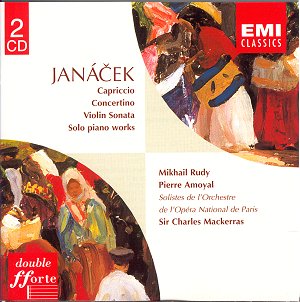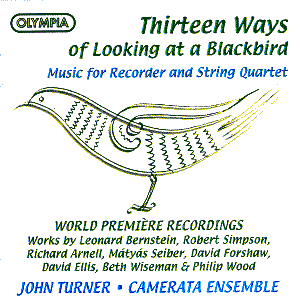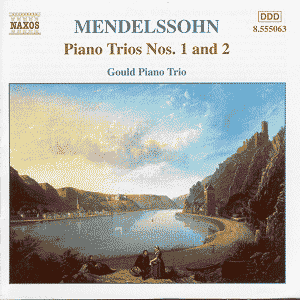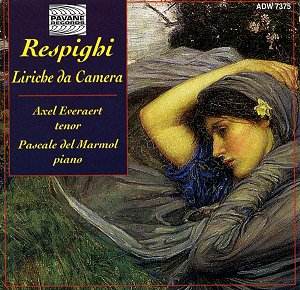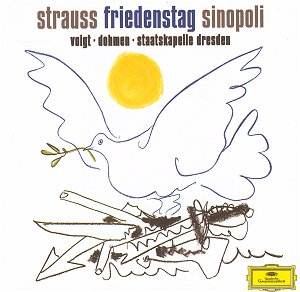 Composer: Richard Strauss
Composer: Richard Strauss
Works: Friedenstag
Performers: Albert Dohmen (Kommendant), Deborah Voigt (Maria), Alfred Reiter (Wachtmeister), Tom Martinsen (Schätze), Jochen Kupper (Konstabel), André Eckert (Musketier), Jürgen Commichau (Hornist), Jochen Schmeckenbecher (Offizier), Matthias Henneberg (Frontoffizier), Jothan Botha (Ein Piemonteser), Attila Jun (Der Holsteiner), Jon Villars (Bürgermeister), Sami Luttinen (Prëlat), Sabine Brohm (Frau aus dem Volke), Staatsopernchor Dresden, Staatskapelle Dresden, Giuseppe Sinopoli, cond.
Recording: September 1999, Lukaskirche Dresden
Label: Deutsche Grammophon (DG 463 494-2)
Friedenstag, composed in 1938, stands as one of the more enigmatic entries in Richard Strauss’s operatic canon. Written during a tumultuous period in Germany’s history, the opera grapples with themes of conflict and the hope for peace, reflecting the composer’s complex relationship with the Nazi regime. The libretto by Josef Gregor, sourced through the Jewish poet Stefan Zweig, evokes a somber yet ultimately redemptive narrative set against the backdrop of the Thirty Years War. This historical context not only informs the music but also imbues it with a weight that transcends its rather austere style.
The recording under review, conducted by Giuseppe Sinopoli, showcases the Staatskapelle Dresden and the Staatsopernchor, both of which excel in their respective roles. Sinopoli’s interpretation is marked by a careful balance that brings out the rich choral textures, particularly in the opera’s closing scene, which resonates with an uplifting fervor. The engineering quality is commendable, allowing for a clarity that highlights the intricate orchestration and the vocal lines. The chorus is especially noteworthy, executing the solemn choral writing with precision and depth, a testament to both the singers and the sound engineers who captured their voices so effectively.
Individual performances, however, present a mixed picture. Albert Dohmen portrays the Kommendant with commanding presence but lacks the vocal nobility that the role ideally demands, leaving the character somewhat less heroic than one might hope. A comparison with the legendary Hans Hotter reveals a stark difference in the gravitas and emotional resonance that a more seasoned interpreter could bring to the role. Deborah Voigt’s portrayal of Maria is compelling, particularly in the more dramatic sections of her aria, yet her interpretation occasionally falls short of the lyrical eloquence required to fully engage with Strauss’s more nuanced moments. The supporting cast, while competent, does not achieve the same level of distinction, lacking the individual characterizations that can elevate a performance into the realm of the extraordinary.
Comparatively, this recording joins an already solid discography that includes interpretations by Clemens Krauss and Wolfgang Sawallisch, both of whom offer more robust vocal performances. While Sinopoli’s version is a worthwhile addition to the catalogue, it does not supplant these earlier recordings as the definitive interpretation of Friedenstag. It provides insights into the score’s underlying dynamics and thematic material, yet one cannot help but feel that the overall effectiveness is diminished by the limitations of its soloists.
Friedenstag may not occupy the top tier of Strauss’s operatic works, but this recording illuminates its potential and relevance. It serves as a valuable exploration of the composer’s late style, marked by an austere lyrical beauty and an earnest yearning for reconciliation. The strengths of the choral performance and the careful orchestral balance under Sinopoli’s direction affirm its place in the broader context of Strauss’s oeuvre. Nevertheless, the performance as a whole does not fully realize the compelling drama and emotional depth that the score inherently possesses.
